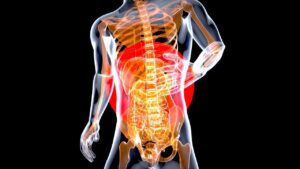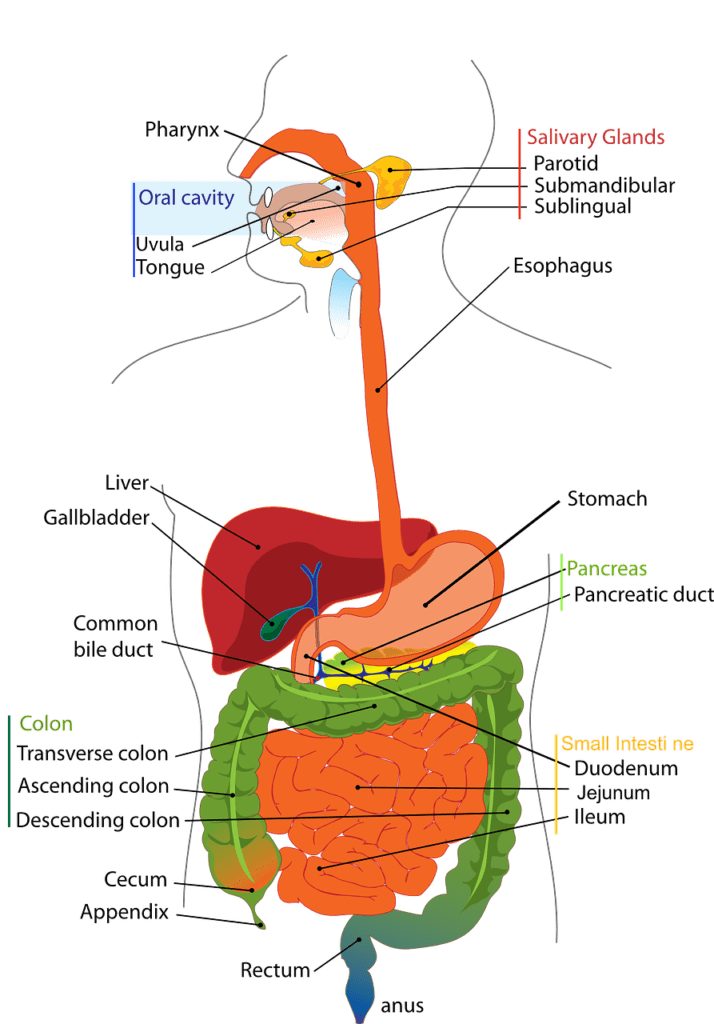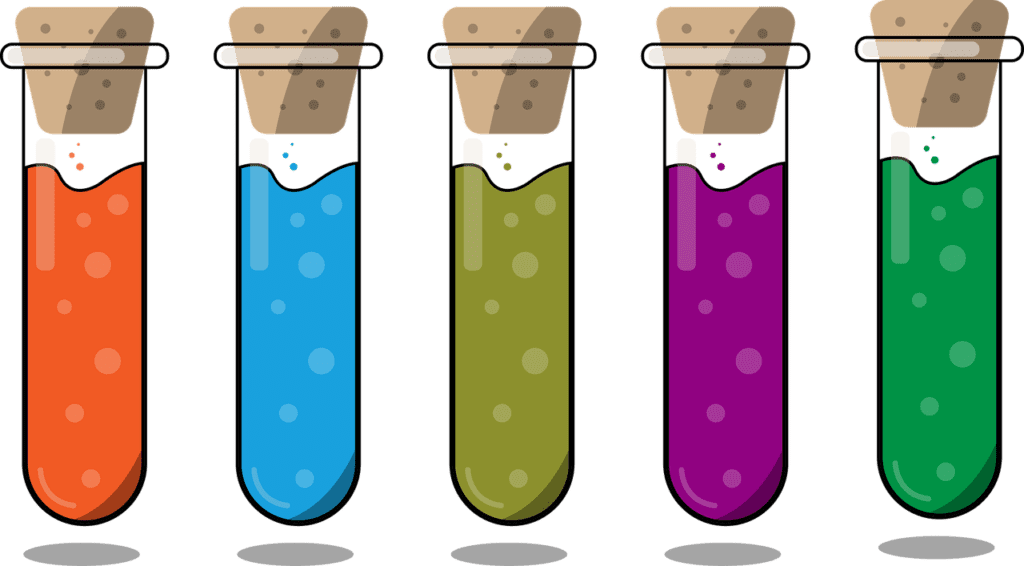What Is Crohn’s Disease? Signs You Should Know and Solutions
Crohn’s disease has a major impact on the digestive tract. It can turn someone’s life upside down. This guide aims to give you a clear picture of this condition. We’ll talk about its signs, how to treat it, and ways to keep it at bay.
We want to help you handle and steer clear of Crohn’s disease. The more you know, the better you can manage your health.

Key Takeaways:
- Crohn’s disease is a long-lasting gut problem that messes with the digestive tract.
- Signs can include belly pain, runny stools, feeling worn out, and dropping pounds, among others.
- Ways to treat it might involve drugs, changing what you eat, and sometimes going under the knife.
- To lower your chances of getting Crohn’s disease, you can live healthy and keep stress in check.
- Spotting it and staying on top of it are key to handling the condition and feeling better overall.
Understanding Crohn’s Disease:
Crohn’s disease is a long-term digestive disorder. It causes non-stop swelling in the gut, leading to tough symptoms. To handle it well, you need to know what you’re up against.
What is Crohn’s Disease?
Crohn’s disease is an autoimmune disorder. The immune system attacks healthy cells in the digestive tract in this condition. This causes inflammation and damage. It often affects the small intestine and the beginning of the colon.

Causes and risk factors:
It is currently unknown what causes Crohn’s disease specifically. They result from a combination of both environmental and genetic variables. A few things that could make you more vulnerable are:
- Genetics: A family history of Crohn’s disease raises your risk.
- Environmental factors: Diet, stress, and certain infections might set off inflammation.
- Immune system problems: Issues with how the immune system controls inflammation can lead to Crohn’s disease.
Scientists don’t have all the answers about Crohn’s disease yet, but they’re working hard to find them. They want to understand how genes, the environment, and the immune system work together to cause this condition.
Potential Causes of Crohn’s Disease Possible Risk Factors:
- Genetic predisposition family history of Crohn’s disease
- Immune system problems
- Smoking
- Environmental factors (e.g., diet, stress, infections)
- Non-steroidal anti-inflammatory drugs (NSAIDs)
- Appendectomy
- Age (most common in young adults)
Spotting Crohn’s Disease Signs:
Crohn’s disease makes life hard due to its unpredictable symptoms. People need to know the usual signs and what to look for when Crohn’s acts up. This knowledge helps them handle this long-term illness better.
Stomach ache stands out as a main sign of Crohn’s disease. The ache’s strength and spot can change. Many folks also have to rush to the bathroom more often. They might lose weight and feel worn out because their body struggles to take in food’s goodness.
When Crohn’s disease strikes, it can throw your life into chaos. These flare-ups can bring back symptoms completely and impact your quality of life. Stress changes in food, or bugs can set them off. They cause more swelling, make symptoms worse, and might mean a trip to the doctor.
To manage Crohn’s disease, it’s crucial to spot when it’s acting up. Keep an eye on changes in bathroom habits and belly pain. This way, people with Crohn’s can team up with their doctors to stop and deal with flare-ups.
Crohn’s disease can manifest itself in different ways for everybody. Ideally, one should be thoroughly informed and be prepared to respond to the symptoms; thus, a means of enhancing a good quality of life is being proactive. The patient can, therefore, work hand in hand with healthcare providers and reduce the extent of this condition if he or she is suffering from Crohn’s.

Crohn’s Disease Diagnosis:
Like many other illnesses affecting the digestive system, diagnosing Crohn’s disease is not easy, as the symptoms may be confused with some other disorders. However, it is important that one seek the attendance of a health care professional for a proper diagnosis of the problem and the correct way forward.
Diagnostic Tests:
Your doctor might suggest some tests to figure out if you have Crohn’s disease: Your doctor might suggest some tests to figure out if you have Crohn’s disease:
- Endoscopy: A small camera attached to a tube is used to allow your doctor to see inside your digestive tract.
- Imaging studies: These are minute images of your digestive system and can involve CT scans or MRIs and small bowel imaging. They assist in identifying inflammation or injury.
- Laboratory tests: These tests are used to look out for the symptoms of inflammation within your blood or your stool and so on to exclude other conditions.

Ruling out Other Conditions:
Your doctor will also check for other health issues that might cause similar symptoms, like: Your doctor will also check for other health issues that might cause similar symptoms, like:
- Irritable Bowel Syndrome (IBS)
- Ulcerative Colitis
- Celiac Disease
- Intestinal Infections
It also ensures the doctor makes the right diagnosis and treatment plan depending on the patient’s condition.
Diagnostic Test Purpose:
Endoscopy: It is a procedure that allows doctors to look at structures of the digestive system lining.
Imaging studies: Division of the medical imaging that presents detailed structures of different parts of the body, the digestive system is not an exception.
Lab investigations: Excludes other causes of similar symptoms and identifies inflammation.
That’s why it is often referred to as a treatment option for Crohn’s disease.
Crohn’s disease may not be easy to deal with, but here is how to cope with it. Crohn’s disease is managed with the help of the physician, and the major treatment being prescribed is for symptoms. Some of the measures that this plan can encompass include medication, changes in diets, and alterations in daily practices.
Medication Management:
Medications are very important in the management of Crohn’s disease. The medications for Crohn’s disease are anti-inflammatory medications, immune suppressant agents, and biologic agents. These medicines also have the ability to act as anti-inflammatory, relieve symptoms, and prevent relapses.
- Amino salicylates and corticosteroids are the medicines that help to reduce inflammation in the area of the gastrointestinal tract.
- This is done through the administration of immune suppressants like methotrexate and azathioprine, which act to reduce the speed of the immune system’s activity.
- Medications for Crohn’s disease are also classified as biologics. These are proteins produced in laboratories and are proffered to work contrary to some biomarkers involved in the inflammation process.
Dietary and Lifestyle Changes:
Apart from taking medicines, you have to change your eating habits and other ways of living to treat Crohn’s disease. Sure, some foods should be avoided while others should be taken in plenty; taking balanced meals and doing away with stressful issues helps.
- During flare-ups, it helps to adhere to a low-fiber, low-fat diet to relieve the symptoms and allow healing to occur.
- Increasing the number of probiotics and anti-inflammatory elements in the diet such as fruits and vegetables may be beneficial for the gut.
- Crohn’s disease diet and proper exercise, adequate sleep, and low stress levels are some of the ways that a patient can avoid a relapse.

Caring for a chronically ill patient; there is a healthcare team that a person with Crohn’s can consult for proper management of the disease, and there is a treatment regime that those individuals should follow. With this approach, we especially want to help change their lives for the better.
Finding out how to prevent Crohn’s disease from worsening is the subject of the next section.
Unfortunately, there is no method that can guarantee that one won’t get affected by this disease, but excluding certain behaviors can help. It could be treated more effectively through measures taken prior to the full development of the symptoms of the ailment if people want to have a healthy life with Crohn’s disease.
Taking healthy food is another major factor towards a healthy lifestyle. This means:
- Consuming fiber-rich foods so that passing stool and reduction of swelling are facilitated
- Foods that should be avoided include those that tend to cause irritation of the symptoms, such as fatty and spicy foods.
- Consequently, one should take many fluids to ensure their body doesn’t dehydrate.
They are also that managing stress is vital and how it should be done. Stress also leads to compromised immune health, not to mention inflammation. So, it’s good to find ways to relax, such as: So, it’s good to find ways to relax, such as:
- Such techniques as meditation or deep breathing can also be used.
- Yoga or exercises that are performed daily or a few times in a week.
- Discussing with friends, relatives, or a psychologist or psychiatrist if necessary
Something that is equally beneficial is to stay away from things that can cause Crohn’s disease. This includes:
- Lack of smoking or being exposed to second-hand smoking
- Avoiding the administration of a number of NSAIDs as they cause symptoms to worsen
It is also worthy of note that early onset, in addition to other lifestyle modifications, is useful in preventing Crohn’s disease. These are the measures that everybody with Crohn’s or everybody who is at risk of getting Crohn’s can take to ensure that he or she leads a healthy life with Crohn’s.

Conclusion:
Crohn’s disease is a complicated and lifelong disorder. It requires good knowledge, good perception, and correct identification of the symptom. It also proves that the efficient treatment and prevention strategy needs to be also elaborated.
Thus, it is possible to improve treatment outcomes for patients and their doctors, knowing the particulars of this disease. This aids in increasing the quality of life of the people who have been diagnosed with Crohn’s disease.
Crohn’s disease is never easy, and every path has its own challenging aspects. However, these are some of the challenges one is able to face in life, but with the right knowledge and a positive attitude, one is able to overcome them. That’s why people should always be careful and seek the help of experienced gastroenterologists.
They can make a diagnosis, develop the treatment process, and even provide potential patients with moral support. It is helpful in getting the best results, as mentioned below.
In treating Crohn’s disease, it does not only focus on the physical, but the patient’s needs as well. It also includes behavior modification such as fending for emotional well-being, a change in diet and schedule, as well as the development of a healthy support system that the patient can easily turn to. Holistic strategies help people control their health since they are encompassing.
This way, they can minimize the impacts that this disease has on their lives. They can also experience something far more fulfilling.
FAQ
What is Crohn’s disease?
Crohn’s disease is inflammation of the digestive tract, or intestinal inflammation, that is chronic in nature. It can affect any part of the body, starting from the mouth to the anus. This disease is characterized by periods of relapse and remission and manifests different symptoms.
What are the presenting features of Crohn’s disease?
Some of the signs include stomach ache, looseness of bowels, and extreme weakness. It also can cause such symptoms as weight reduction, symptoms of malnutrition, and fever. The other signs are inflammation, obstruction, and also what it referred to as fistulas in the small intestines.
What is the process for diagnosing Crohn’s disease?
A diagnosis of Crohn’s disease involves evaluation of symptoms and physical examinations combined with blood tests and imaging tests. They do this to eliminate other possibilities of an explanation for the clients’ symptoms.
What is the current treatment served in cases of Crohn’s disease?
Treatment involves medication, altering one’s diet, and making some modifications to one’s way of life. Doctors may recommend the use of non-steroidal anti-inflammatory drugs, corticosteroids, or biologic agents. In other cases, surgery is performed to correct problem areas or to alleviate certain symptoms and/or pain.
Is there any way of preventing Crohn’s disease?
Unfortunately, no one knows for sure how to avoid getting Crohn’s disease. However, the following treatment can be of great help in preventing the development of the diseases: In patients with diabetes, the best approach is to diagnose the problem early and then treat it accordingly.
In what manner may diet and lifestyle cause Crohn’s disease?
Crohn’s disease can be controlled to a certain degree depending on one’s diet and some of the activities that one engages in. This showed that there are diet changes one can take to avoid the relapse of symptoms that are associated with the disorder. They include stress management, exercise, and refraining from smoking.